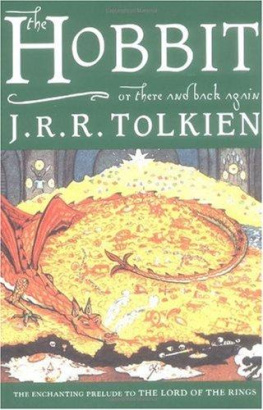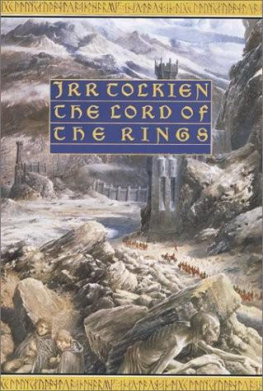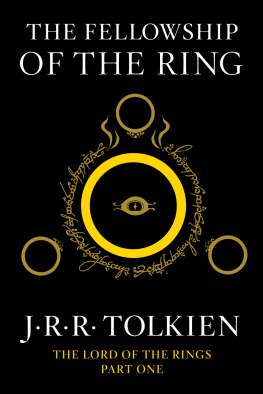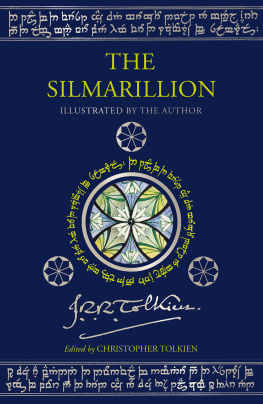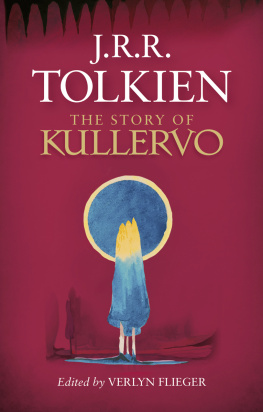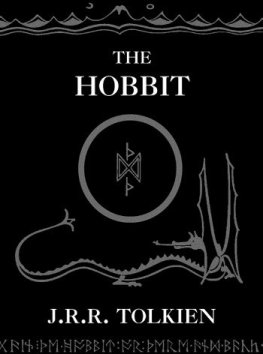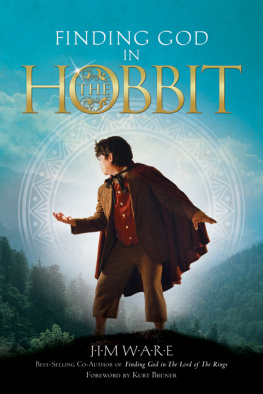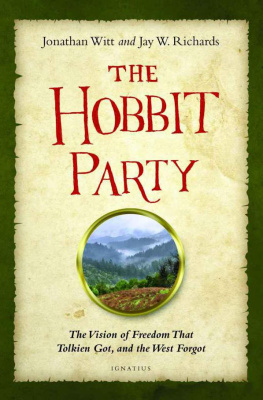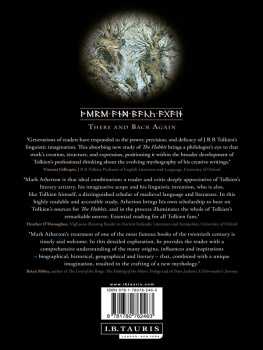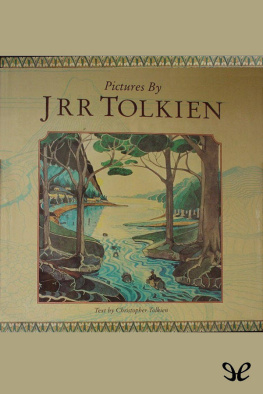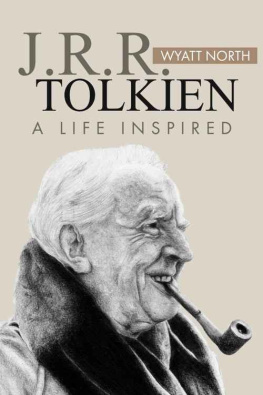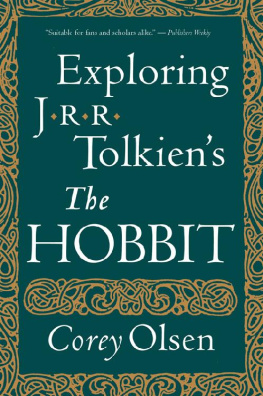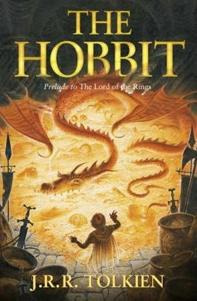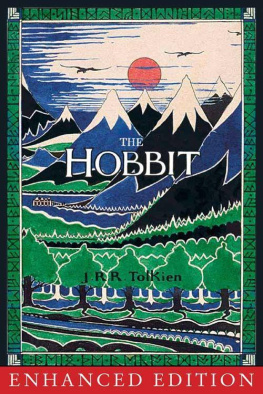J.R.R. Tolkien - The Hobbit or, There and Back Again
Here you can read online J.R.R. Tolkien - The Hobbit or, There and Back Again full text of the book (entire story) in english for free. Download pdf and epub, get meaning, cover and reviews about this ebook. year: 2002, publisher: Graphia, genre: Home and family. Description of the work, (preface) as well as reviews are available. Best literature library LitArk.com created for fans of good reading and offers a wide selection of genres:
Romance novel
Science fiction
Adventure
Detective
Science
History
Home and family
Prose
Art
Politics
Computer
Non-fiction
Religion
Business
Children
Humor
Choose a favorite category and find really read worthwhile books. Enjoy immersion in the world of imagination, feel the emotions of the characters or learn something new for yourself, make an fascinating discovery.
- Book:The Hobbit or, There and Back Again
- Author:
- Publisher:Graphia
- Genre:
- Year:2002
- Rating:4 / 5
- Favourites:Add to favourites
- Your mark:
- 80
- 1
- 2
- 3
- 4
- 5
The Hobbit or, There and Back Again: summary, description and annotation
We offer to read an annotation, description, summary or preface (depends on what the author of the book "The Hobbit or, There and Back Again" wrote himself). If you haven't found the necessary information about the book — write in the comments, we will try to find it.
The Hobbit or, There and Back Again — read online for free the complete book (whole text) full work
Below is the text of the book, divided by pages. System saving the place of the last page read, allows you to conveniently read the book "The Hobbit or, There and Back Again" online for free, without having to search again every time where you left off. Put a bookmark, and you can go to the page where you finished reading at any time.
Font size:
Interval:
Bookmark:
In this reprint several minor inaccuracies, most of them noted by readers, have been corrected. For example, the text on pages 32 and 62 now corresponds exactly with the runes on Thror's Map. More important is the matter of Chapter Five. There the true story of the ending of the Riddle Game, as it was eventually revealed (under pressure) by Bilbo to Gandalf, is now given according to the Red Book, in place of the version Bilbo first gave to his friends, and actually set down in his diary. This departure from truth on the part of a most honest hobbit was a portent of great significance. It does not, however, concern the present story, and those who in this edition make their first acquaintance with hobbit-lore need not troupe about it. Its explanation lies in the history of the Ring, as it was set out in the chronicles of the Red Book of Westmarch, and is now told in The Lord of the Rings.
A final note may be added, on a point raised by several students of the lore of the period. On Thror's Map is written Here of old was Thrain King under the Mountain; yet Thrain was the son of Thror, the last King under the Mountain before the coming of the dragon. The Map, however, is not in error. Names are often repeated in dynasties, and the genealogies show that a distant ancestor of Thror was referred to, Thrain I, a fugitive from Moria, who first discovered the Lonely Mountain, Erebor, and ruled there for a while, before his people moved on to the remoter mountains of the North.
Chapter I
An Unexpected Party
I
n a hole in the ground there lived a hobbit. Not a nasty, dirty, wet hole, filled with the ends of worms and an oozy smell, nor yet a dry, bare, sandy hole with nothing in it to sit down on or to eat: it was a hobbit-hole, and that means comfort.
It had a perfectly round door like a porthole, painted green, with a shiny yellow brass knob in the exact middle. The door opened on to a tube-shaped hall like a tunnel: a very comfortable tunnel without smoke, with panelled walls, and floors tiled and carpeted, provided with polished chairs, and lots and lots of pegs for hats and coats - the hobbit was fond of visitors. The tunnel wound on and on, going fairly but not quite straight into the side of the hill - The Hill, as all the people for many miles round called it - and many little round doors opened out of it, first on one side and then on another. No going upstairs for the hobbit: bedrooms, bathrooms, cellars, pantries (lots of these), wardrobes (he had whole rooms devoted to clothes), kitchens, dining-rooms, all were on the same floor, and indeed on the same passage. The best rooms were all on the left-hand side (going in), for these were the only ones to have windows, deep-set round windows looking over his garden and meadows beyond, sloping down to the river.
This hobbit was a very well-to-do hobbit, and his name was Baggins. The Bagginses had lived in the neighbourhood of The Hill for time out of mind, and people considered them very respectable, not only because most of them were rich, but also because they never had any adventures or did anything unexpected: you could tell what a Baggins would say on any question without the bother of asking him. This is a story of how a Baggins had an adventure, found himself doing and saying things altogether unexpected. He may have lost the neighbours' respect, but he gained-well, you will see whether he gained anything in the end.
The mother of our particular hobbit ... what is a hobbit? I suppose hobbits need some description nowadays, since they have become rare and shy of the Big People, as they call us. They are (or were) a little people, about half our height, and smaller than the bearded Dwarves. Hobbits have no beards. There is little or no magic about them, except the ordinary everyday sort which helps them to disappear quietly and quickly when large stupid folk like you and me come blundering along, making a noise like elephants which they can hear a mile off. They are inclined to be at in the stomach; they dress in bright colours (chiefly green and yellow); wear no shoes, because their feet grow natural leathery soles and thick warm brown hair like the stuff on their heads (which is curly); have long clever brown fingers, good-natured faces, and laugh deep fruity laughs (especially after dinner, which they have twice a day when they can get it). Now you know enough to go on with. As I was saying, the mother of this hobbit - of Bilbo Baggins, that is - was the fabulous Belladonna Took, one of the three remarkable daughters of the Old Took, head of the hobbits who lived across The Water, the small river that ran at the foot of The Hill. It was often said (in other families) that long ago one of the Took ancestors must have taken a fairy wife. That was, of course, absurd, but certainly there was still something not entirely hobbit-like about them, - and once in a while members of the Took-clan would go and have adventures. They discreetly disappeared, and the family hushed it up; but the fact remained that the Tooks were not as respectable as the Bagginses, though they were undoubtedly richer. Not that Belladonna Took ever had any adventures after she became Mrs. Bungo Baggins. Bungo, that was Bilbo's father, built the most luxurious hobbit-hole for her (and partly with her money) that was to be found either under The Hill or over The Hill or across The Water, and there they remained to the end of their days. Still it is probable that Bilbo, her only son, although he looked and behaved exactly like a second edition of his solid and comfortable father, got something a bit queer in his makeup from the Took side, something that only waited for a chance to come out. The chance never arrived, until Bilbo Baggins was grown up, being about fifty years old or so, and living in the beautiful hobbit-hole built by his father, which I have just described for you, until he had in fact apparently settled down immovably.
By some curious chance one morning long ago in the quiet of the world, when there was less noise and more green, and the hobbits were still numerous and prosperous, and Bilbo Baggins was standing at his door after breakfast smoking an enormous long wooden pipe that reached nearly down to his woolly toes (neatly brushed) - Gandalf came by. Gandalf! If you had heard only a quarter of what I have heard about him, and I have only heard very little of all there is to hear, you would be prepared for any sort I of remarkable tale. Tales and adventures sprouted up all over the place wherever he went, in the most extraordinary fashion. He had not been down that way under The Hill for ages and ages, not since his friend the Old Took died, in fact, and the hobbits had almost forgotten what he looked like. He had been away over The Hill and across The Water on business of his own since they were all small hobbit-boys and hobbit-girls.
All that the unsuspecting Bilbo saw that morning was an old man with a staff. He had a tall pointed blue hat, a long grey cloak, a silver scarf over which a white beard hung down below his waist, and immense black boots.
"Good morning!" said Bilbo, and he meant it. The sun was shining, and the grass was very green. But Gandalf looked at him from under long bushy eyebrows that stuck out further than the brim of his shady hat. "What do you mean?" be said. "Do you wish me a good morning, or mean that it is a good morning whether I want not; or that you feel good this morning; or that it is morning to be good on?"
"All of them at once," said Bilbo. "And a very fine morning for a pipe of tobacco out of doors, into the bargain. If you have a pipe about you, sit down and have a fill of mine! There's no hurry, we have all the day before us!" Then Bilbo sat down on a seat by his door, crossed his legs, and blew out a beautiful grey ring of smoke that sailed up into the air without breaking and floated away over The Hill.
Next pageFont size:
Interval:
Bookmark:
Similar books «The Hobbit or, There and Back Again»
Look at similar books to The Hobbit or, There and Back Again. We have selected literature similar in name and meaning in the hope of providing readers with more options to find new, interesting, not yet read works.
Discussion, reviews of the book The Hobbit or, There and Back Again and just readers' own opinions. Leave your comments, write what you think about the work, its meaning or the main characters. Specify what exactly you liked and what you didn't like, and why you think so.

